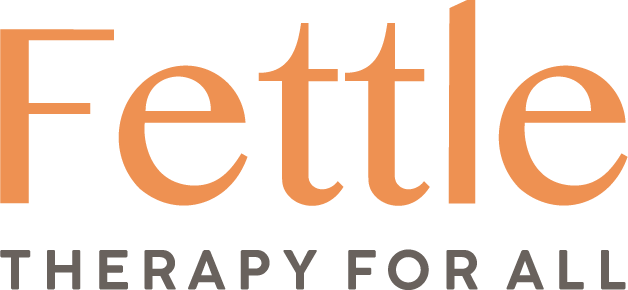
Dialectical Behavioural Therapy
Dialectical behaviour therapy (DBT) is an adjusted type of cognitive behavioural therapy (CBT). Its primary objectives are to teach people how to live in the now, build healthy stress coping mechanisms, regulate their emotions, and improve their interpersonal connections.
What Can DBT Help With?
DBT was created to treat borderline personality disorder (BPD), but it has now been adapted to treat various mental illnesses. It can help persons who have trouble controlling their emotions or engage in self-destructive behaviour such as:
Eating Disorders
Benefits of DBT Therapy
In DBT, the patient and therapist work together to reconcile the seeming contradiction between self-acceptance and change to help the person in therapy make suitable changes. Offering validation is a part of this process, making people more ready to collaborate and less likely to be distressed by the prospect of change.
In practice, the therapist confirms that a person's behaviour "makes sense" in the context of their personal experiences without necessarily agreeing that their way is the best way to solve an issue.
Although the structure and aims of each therapeutic environment differ, DBT features can be found in group skills training, individual psychotherapy, and phone coaching. The basic structure includes:
Acceptance and change - You'll learn techniques for accepting and tolerating your life circumstances, emotions, and self. You will also gain skills that will assist you in making positive adjustments in your conduct and interactions with others.
Behavioural - You'll learn to identify issues or destructive behaviour patterns and replace them with healthier and more effective alternatives.
Cognitive - You'll concentrate on modifying ineffective or harmful attitudes and beliefs.
Collaboration - You'll learn how to successfully communicate and collaborate as a group (therapist, group therapist, psychiatrist).
Skill sets - You'll gain new talents by learning new skills.
Support - You will be encouraged to recognise and enhance your good strengths and attributes.
How does Dialectical Behaviour Therapy Work?
DBT focuses on four different strategies to improve life skills:
Core Mindfulness
The development of mindfulness abilities is a crucial benefit of DBT. Mindfulness allows you to "live in the moment" by focusing on the present. When dealing with emotional discomfort, mindfulness skills can help you slow down and focus on adopting appropriate coping strategies. The technique can also assist you in remaining calm and avoiding negative thought patterns.
Distress Tolerance
Skills in distress tolerance assist you in accepting yourself and your current position. DBT offers a variety of crisis management techniques, including:
Distraction
Improving the situation
Self-soothing
Consider the advantages and disadvantages of not accepting distress.
Distress tolerance tactics can help you prepare for strong emotions and equip you to cope with them in the long run.
Interpersonal Effectiveness
Interpersonal effectiveness enables you to be more aggressive in a relationship (for example, by expressing your wants and saying "no") while maintaining a happy and healthy relationship. You'll improve your listening and communication skills and your ability to deal with complex individuals and respect yourself and others.
Emotional Regulation
Emotion control allows you to deal with strong emotions more effectively. Your new skills will help you recognise, name, and modify your feelings.
It minimises your emotional sensitivity and helps you have more pleasant emotional experiences when you notice and manage severe negative feelings (such as anger).
What can a DBT Therapist Treat?
Dr. Marsha Linehan and colleagues created DBT in the late 1980s after discovering that cognitive-behavioural therapy (CBT) alone did not function as well as expected in individuals with BPD. Dr. Linehan and her team tweaked approaches and created a treatment to match these people's specific needs.
DBT was created with BPD in mind, although it could also be beneficial for:
Hyperactivity/attention deficit disorder (ADHD)
Bipolar illness
Personality disorder borderline (BPD)
Eating problems (such as anorexia nervosa, binge eating disorder, and bulimia nervosa)
Anxiety disorder, generalised (GAD)
Depressive illness (major depression) (including treatment-resistant major depression and chronic depression)
Obsessive-compulsive disorder (OCD) is a type of anxiety condition (OCD)
Post-Traumatic Stress Disorder (PTSD)
Addiction to substances
Effectiveness of DBT Therapy
People can discover effective strategies to regulate and express strong emotions with this approach to therapy since it can help them improve their coping abilities. DBT is also beneficial independent of a person's age, gender, gender identity, sexual orientation, or race/ethnicity:
DBT is beneficial in treating borderline personality disorder (BPD). According to one study, more than 75% of persons with BPD no longer satisfied the diagnostic criteria for the disorder after a year of treatment.
For other mental health conditions: While most DBT research has focused on its usefulness for persons with borderline personality disorder, the therapy may also be effective for those with other mental health issues. This sort of therapy, for example, appears to be helpful in the treatment of PTSD, depression, and anxiety, according to a study.
Where to find a DBT Therapist in Ireland
The best approach to determine whether DBT is suited for you is to speak with a trained therapist. To establish if DBT is a good fit for you, they'll look at your symptoms, treatment history, and therapeutic goals. Fettle, is an excellent place to start when looking for a therapist in Ireland. We provide a wide array of certified professionals in DBT therapy and other disciplines.
Things to Consider
There are a few key questions to ask a therapist who offers DBT:
What are your educational credentials? Is it true that you have a license to provide mental health therapy in Ireland?
What DBT advanced training have you received?
Do you provide DBT for individuals and groups? If so, how would you approach treatment?
Do you exclusively provide DBT or combine DBT with other therapy approaches? If yes, what other methods do you employ?
How to Get Started
If you or a loved one thinks DBT could help, speak with a healthcare physician or mental health professional who has been trained in the technique. However, finding DBT therapists is not always straightforward but Fettle.ie , provides numerous healthcare professionals certified and trained in Dialectical Behavioural Therapy; you can vet and choose your therapists all from your own home. Hit the button below and check out the dedicated therapists for DBT.
Book Your Free 20-Minute Consultation
Choose a time that works best for you
Loading calendar...
Book a Therapy Session Now
Choose Your Therapy Plan
Start with a free consultation, book individual sessions, or save with our 3-session bundle
Let's Talk - Find Your Path
20 minute discovery call
No cost, no obligation
- Discover what's available to you
- Explore therapy options together
- Find the right therapist fit
- Ask any questions you have
- No pressure to commit
Pay As You Go
Standard 50-minute session
Per session
- Book sessions at your own pace
- No commitment required
- Perfect for flexible schedules
- Full 50-minute sessions
- Access to all qualified therapists
3-Session Bundle
Your starter journey to lasting change
- Book anytime that suits your schedule
- Weekend sessions available
- Out-of-office hours appointments
This bundle offers the perfect balance of flexibility and commitment — giving you the freedom to schedule around your life while making a meaningful investment in your mental health journey.
Start Your JourneyWhy Long-Term Therapy Creates Lasting Change
Research consistently shows that while short-term therapy provides quick relief, long-term therapy delivers deeper, more sustainable transformation that continues to benefit you for years after treatment ends.
The Long-Term Advantage
While short-term therapies provide benefits more quickly, research from the Helsinki Psychotherapy Study shows that long-term therapy becomes more effective over time, with superior outcomes appearing after the first year and continuing to grow throughout the follow-up period.
Long-term therapy provides additional benefits for psychosocial functioning and quality of life that emerge later in treatment and persist for years, including improvements in sense of coherence, perceived competence, and dispositional optimism.
The gains from therapy are markedly stable and endure several years after treatment ends, with long-term therapy showing particular benefits for improving perceived social support - a crucial factor for psychological well-being.
The Bottom Line
Committing to long-term therapy (6+ sessions) gives you the time and support needed to create deep, lasting transformation that continues to benefit you long after your sessions end.
Frequently Asked Questions
Can DBT work for me even if nothing else has worked?
Many people who seek DBT have had little success with conventional treatments. This is frequently because other therapy failed to address the skills impairments that caused their problems. DBT argues that understanding the causes of difficulties/behaviours does not address the issue. Instead, it could be the first step toward changing habits. To make adjustments, though, insight isn't always required.
How fast does DBT work?
DBT is more like a marathon than a sprint. It takes effort and patience to change habits. We're "rewiring" the brain connections in specific ways by educating people to act and think differently, which leads to different consequences. As DBT therapists, we don't anticipate observing significant changes until the therapy cycle is finished. Some people and families require two processes of complete DBT to notice results, which is understandable because adult DBT programs typically last a year.
Am I going to have to be in DBT treatment forever?
No! DBT is a recovery-oriented approach. This means we'll do everything we can to help you construct a life that doesn't require you to be in DBT or any other therapy for the rest of your life. Most people who complete our program enjoy very fulfilling lives with far less suffering.
Meet Fettle’s Trusted Online Counsellors!
Our qualified psychotherapists are ready to help.
Click through to read a therapist’s bio or to book a session.
Want to learn more about therapy for bereavement and other issues?
Check out these related blog posts.



















